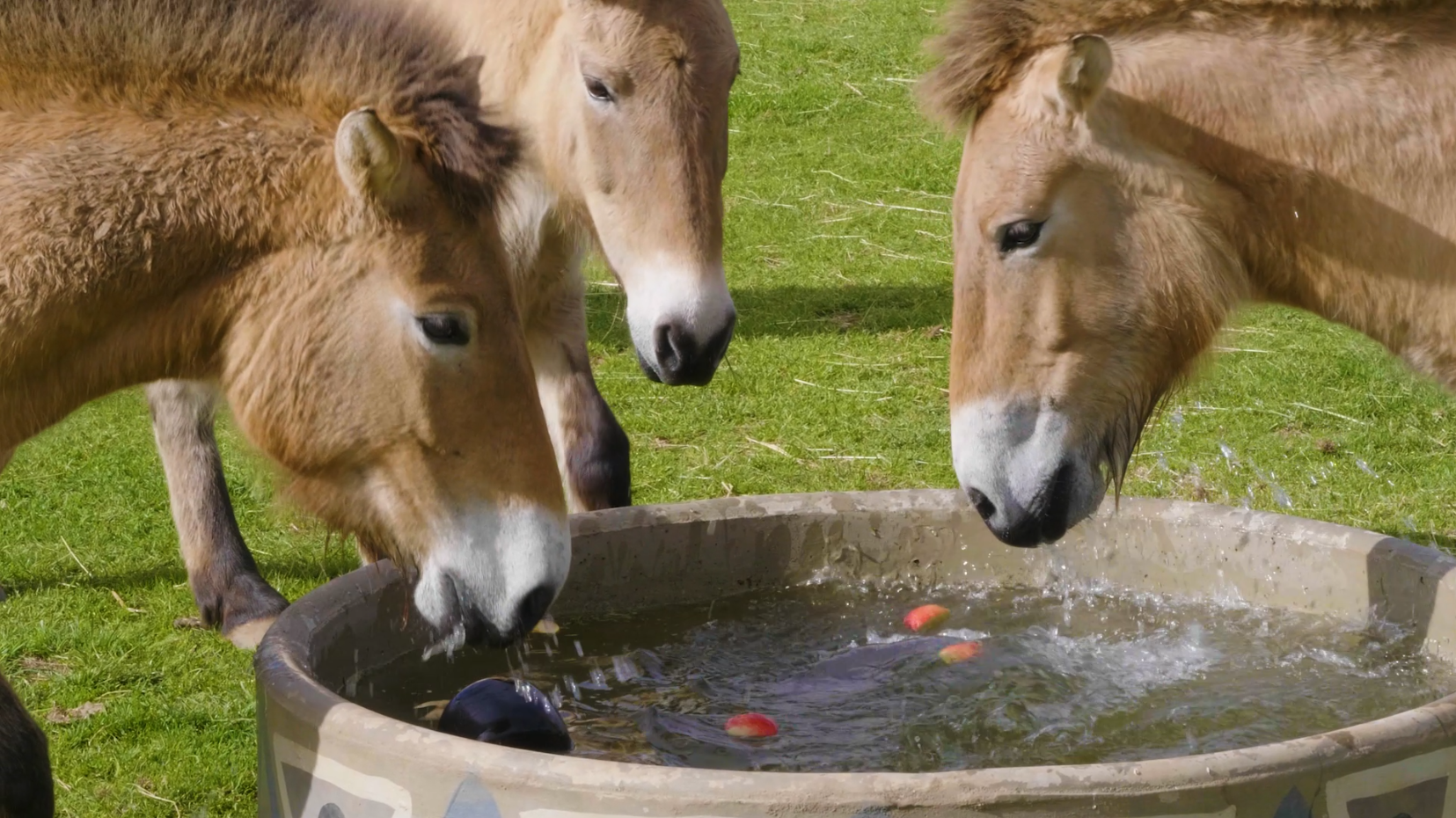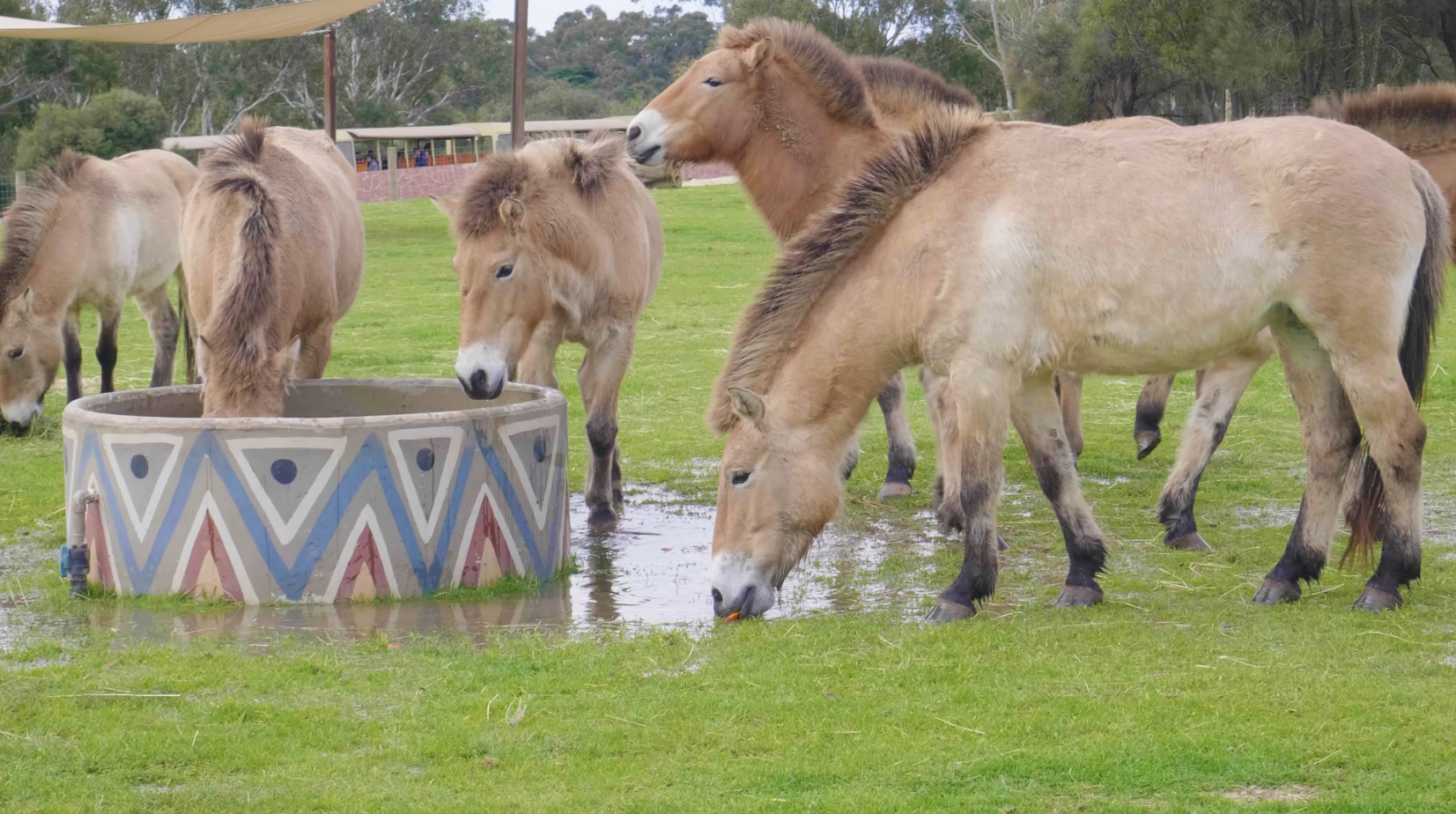Horses go wild for apple bobbing
Asian wild horses at Werribee Open Range Zoo are diving head first into the latest novel experience being offered to keep the endangered species fit and healthy.

Several of the notoriously shy herd animals were seen enthusiastically sticking their heads into a water trough to claim floating apples and carrots. The remaining herd members were content to lick a nutrient-dense molasses mix within easier reach.
Werribee Open Range Zoo keeper Laura Harbridge said providing new ways of feeding encourages herd bonding, curiosity and confidence.
“As social animals that graze, rest and play together, apple and carrot bobbing is very engaging for the herd and adds complexity to their environment,” Ms Harbridge said. "It also encourages foraging behaviours and play.”
Sweet treats, such as fruit and molasses, are used to introduce new flavours to the horses and stimulate them mentally and physically.
“As social animals that graze, rest and play together, apple and carrot bobbing is very engaging for the herd and adds complexity to their environment. It also encourages foraging behaviours and play.”
"It's important to give them lots of choice in their daily lives and the horses absolutely love splashing in the water to find the treats,” Ms Harbridge said. "Visitors can also look forward to seeing the herd socialise, wallow in the mud and graze together."
Asian wild horses are the last remaining wild horse species in the world and are characterised by their unique appearance - only growing to the size of a pony when fully mature. They have large heads, thick necks and wide bodies. Their dark-coloured mane distinctly contrasts against a white nose and tan-coloured coat that thickens in the winter.
Once ranging across parts of Europe and central Asia, this species was listed as extinct in the wild in the 1960s by the International Union for Conservation of Nature. Over the past 50 years, zoos around the world have worked together on an international breeding program to bring the species back from the brink and reintroduce the horses to the wild.

